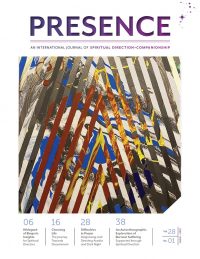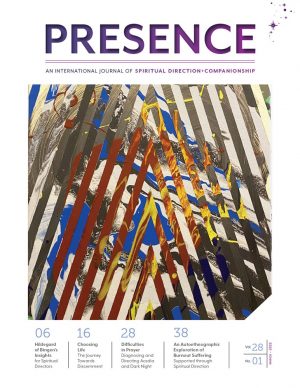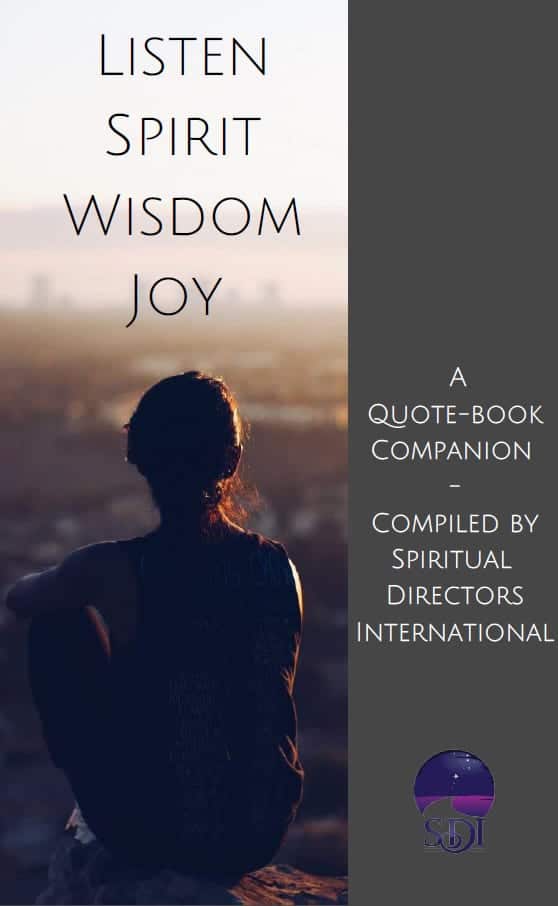Ilia Delio passionately advocates for an emerging theological vision informed by, and in dialog with, modern scientific insights about the nature of reality. “Although science has undergone three major paradigm shifts since the Middle Ages, the church still relies on medieval theology to explain the mysteries of the Christian faith” (xv). This collection of essays affirms God’s presence in the human struggle toward an emerging planetary perspective.
The book title honors the traditional Roman Catholic Liturgy of the Hours, a practice of daily prayer designed to shape the order of communal monastic life, and reflects Delio’s spiritual formation as a religious sister in the Franciscan order. But it also expresses her belief that our path forward in relationship to God requires a comprehensive shift from a cloistered worldview toward contemplation of the universe as revealed through ongoing scientific inquiry. A prolific writer and professor of theology with a professional background in pharmacology, Delio is well equipped to navigate the intersection of science and religion, reflecting extensively on the visionary path established by Jesuit priest and scientist Pierre Teilhard de Chardin a century ago.
One hundred years after Albert Einstein upended the Newtonian understanding of a fixed and static universe with his theory of general relativity, religious thought has yet to widely embrace the new possibilities of understanding that follow such conceptual upheaval. “The mysterious new universe calls for a renewed sense of divine mystery in the cosmos, a new religious myth, a new narrative that draws us into these cosmic waves that are, in some fundamental way, the source of our lives” (6). New technology has opened doors for unprecedented comprehension of micro- and macroscopic scales of the universe, inviting opportunity for seismic shifts in religious understanding, yet “religion has become fossilized, while science has discovered an entirely new universe” (150).
Chapter headings are named for the prayers that comprise the Liturgy of the Hours, which traditionally punctuate the day every three hours, from the darkness of early morning through the end of day before bedtime: Matins, Lauds, Prime, Terce, Sext, None, Vespers, Compline. A poetic recasting of Trinitarian concepts precedes each chapter. In a section called “Quantum Edge Catholicity,” Delio reflects on the spiritual implications of quantum mechanics, entanglement, and chaos theory. “We have an urgent need to construct a new religion story today; theology can no longer be content to roam around the Patristic and Middle Ages while importing ancient ideas into the twenty-first century. We have confused history with a living God” (xvi). Delio honors the groundwork offered by traditional Christianity while presenting a compelling vision for scientifically literate and culturally unitive spirituality.
At a time when society is increasingly polarized by seemingly irreconcilable beliefs, we are in great need of bridge builders to guide public discourse. Delio offers a hopeful message to reframe the vital force of love as the fundamental creative energy of the universe. Useful as a guide for private devotion or group discussion, this is a book to push the envelope of conventional piety toward a larger horizon.

The Hours of the Universe: Reflections on God, Science, and the Human Journey
by Ilia Delio
Maryknoll, NY:
Orbis Books, 2021
272 pages
CAD $31.99
GBP £17.99
USD $25.00
This Review Appears In
AN INTERNATIONAL JOURNAL OF SPIRITUAL DIRECTION + COMPANIONSHIP
Vol. 28 | No. 1 | MARCH – 2022
Reviewer
Amelia Stratton-Smith, MTS
is a spiritual director, writer, and artist in Rochester, New York, USA. She is affiliated with the Presbyterian Church (USA), and she received a diploma in the art of spiritual direction from San Francisco Theological Seminary, in San Anselmo, California, USA.




